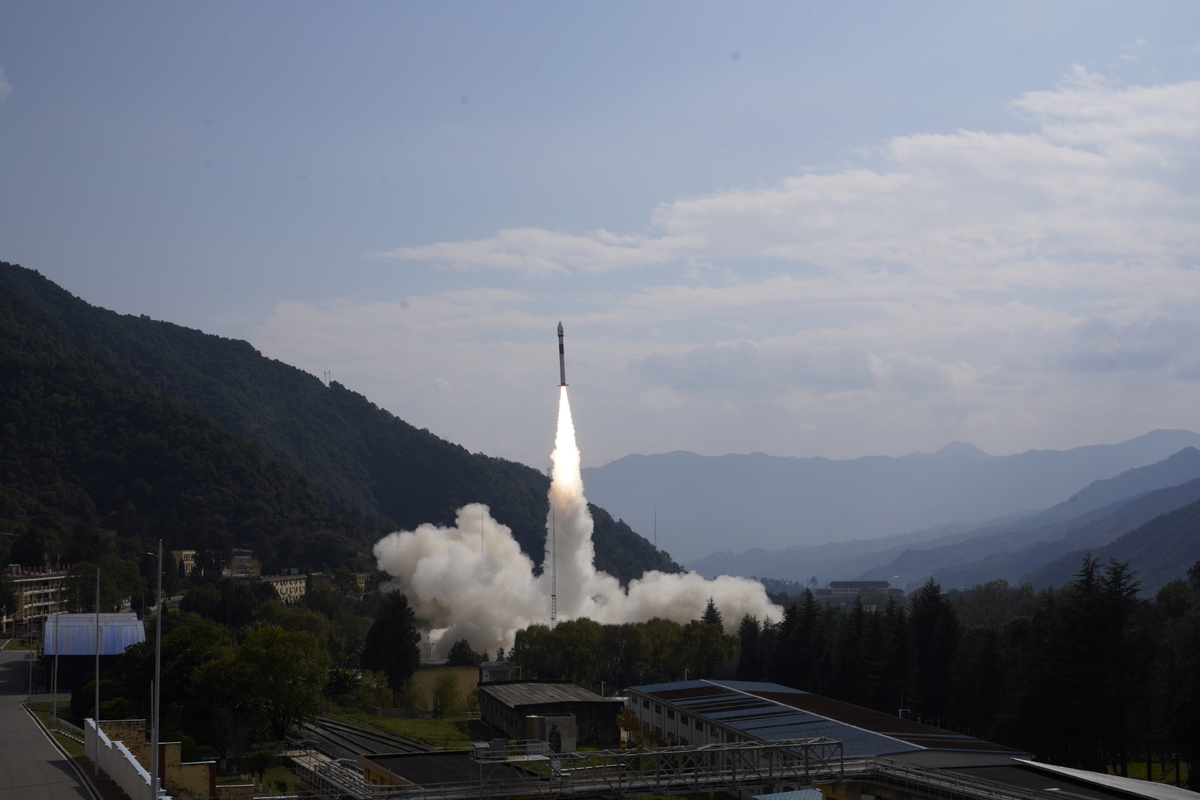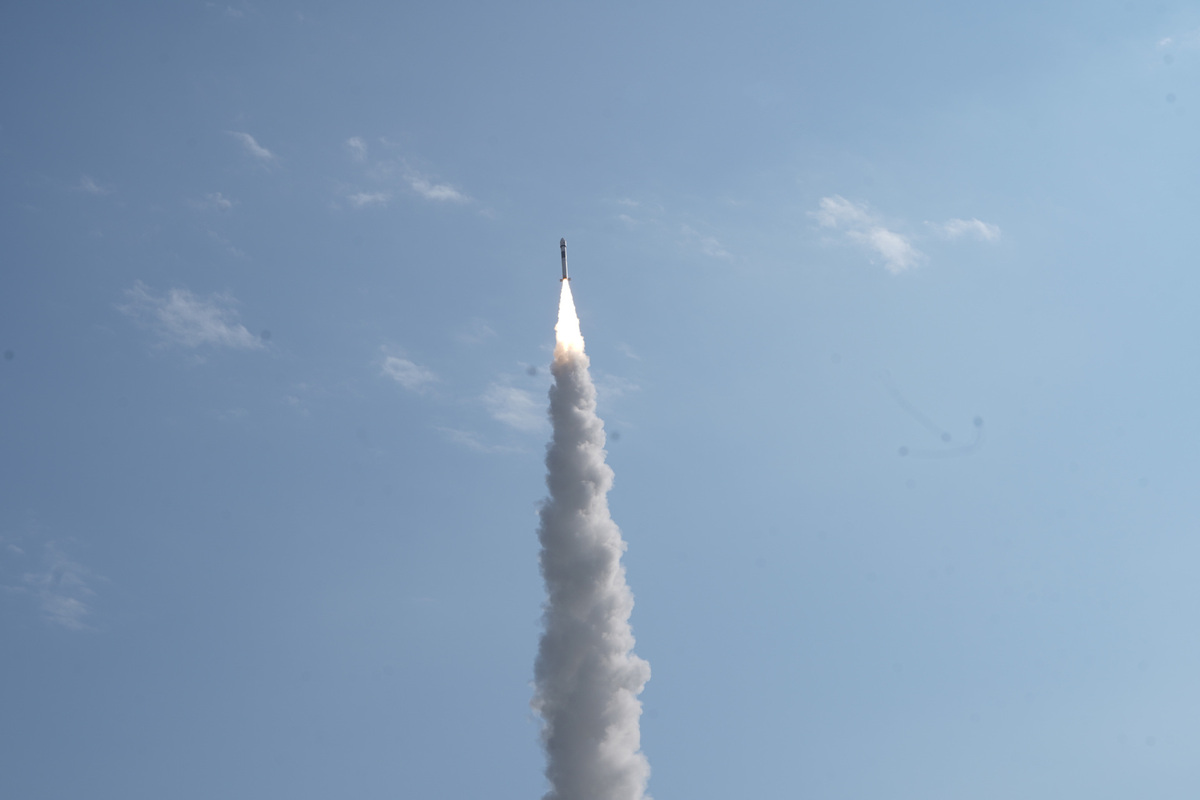
A Kuaizhou 1A carrier rocket carrying a new remote-sensing satellite blasts off from the Xichang Satellite Launch Center in Southwest China's Sichuan province, Dec 4, 2024. [Photo/Xinhua]
China launched a Kuaizhou 1A carrier rocket on Wednesday afternoon from the Xichang Satellite Launch Center in Sichuan province, sending remote-sensing satellite into space.
The solid-propellant rocket blasted off at 12:46 pm from its launch vehicle and placed the Haishao 1, or Sea Sentinel 1, satellite into its preset orbit, according to China Aerospace Science and Industry Corp, a State-owned space contractor that developed and built the launch vehicle.
The company said in a news release that the satellite, made by the Shanghai-based Innovation Academy for Microsatellites of the Chinese Academy of Sciences, is equipped with synthetic aperture radars and is tasked with monitoring marine environment and sea targets.

A Kuaizhou 1A carrier rocket carrying a new remote-sensing satellite blasts off from the Xichang Satellite Launch Center in Southwest China's Sichuan province, Dec 4, 2024. [Photo/Xinhua]
Remote sensing satellites refer to those tasked with observing, surveying and measuring objects on land or at sea as well as monitoring weather.
The mission marked the 28th flight of the Kuaizhou 1A model as well as China's 61st space launch this year.
Developed by China Space Sanjiang Group, a CASIC subsidiary, in Hubei province, the 20-meter Kuaizhou 1A is the country's most used solid-propellant carrier rocket model.
The rocket launched on Wednesday was an upgraded version of the Kuaizhou 1A, boasting a larger space inside its payload fairing that can contain a bigger satellite.
Compared with the baseline model capable of sending 300 kilograms of payloads into a low-Earth orbit, the upgraded one is able to transport 450 kg to the same orbit, according to its designers.

A Kuaizhou 1A carrier rocket carrying a new remote-sensing satellite blasts off from the Xichang Satellite Launch Center in Southwest China's Sichuan province, Dec 4, 2024. [Photo/Xinhua]